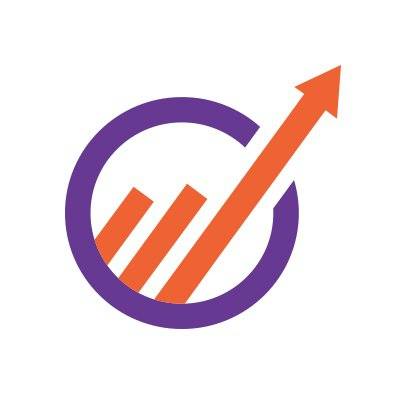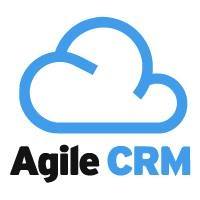Content Outline
Top 18 Best CRM for Startups & Small Businesses 2026
Here are the best CRM for startups and small business that you must consider:
1. EngageBay CRM
EngageBay is a common and efficient integrated, all-in-one marketing, distribution, and support CRM platform that is used by over 29500 growing businesses worldwide.
EngageBay assists businesses in acquiring, engaging, nurturing, and converting website users into satisfied customers, allowing them to expand their company three times or more.
The free CRM (Customer Relationship Management) solution from EngageBay allows you to organize all of your email contacts, monitor deals and the sales pipeline, and create meaningful customer relationships.
Their customer service is excellent, and they deliver a cost-effective solution that is jam-packed with functionality.
Their technical team responds quickly to any problems we find (which are few). With MailGun and Zapier, they have a perfect integration.
Navigating the interface, speaking with clients, categorizing contacts lists, applying tags, and generally managing the atmosphere are all extremely easy.
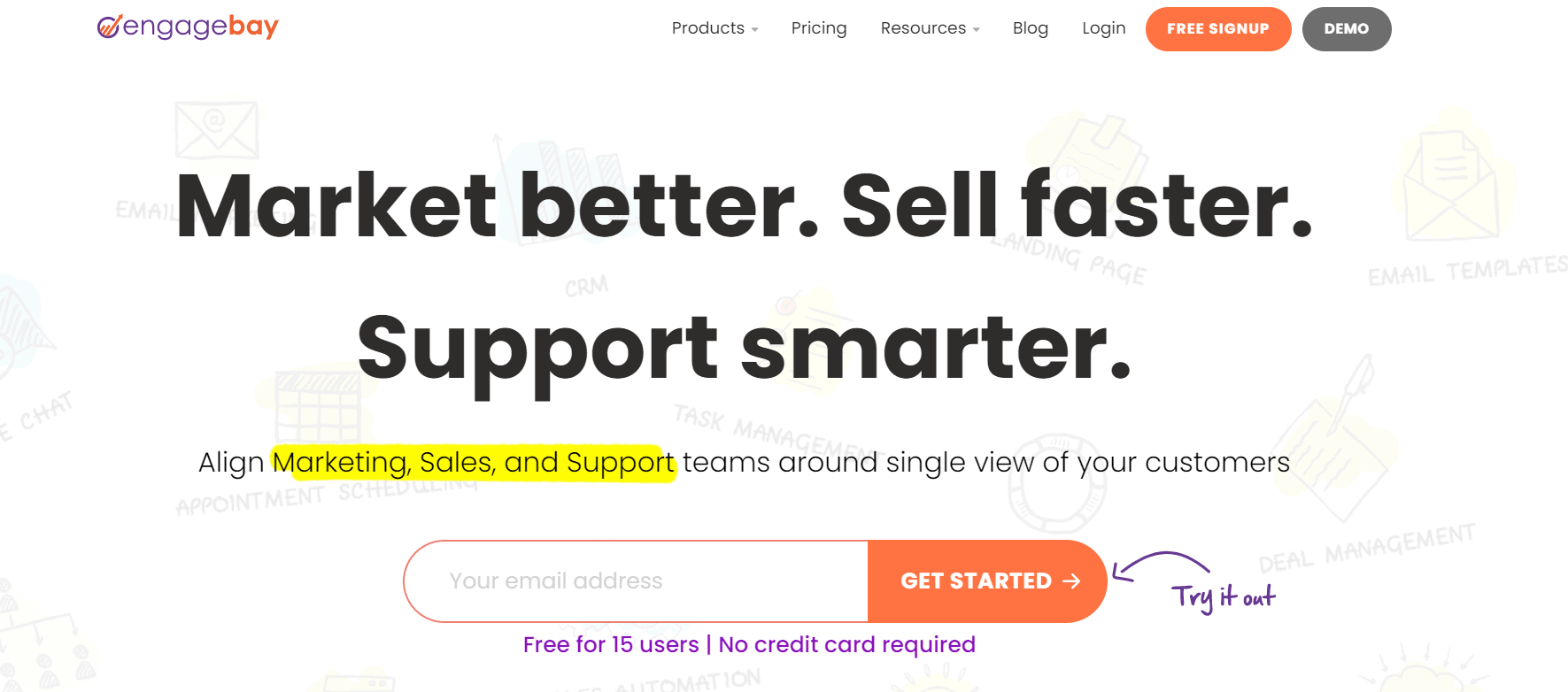
Benefits:
- Engagebay offers simple and easy-to-use marketing, sales, customer service, and contact management software for small businesses.
- Tracks touch, site, and email activity, as well as open and click rates.
- With two-way sync capabilities, it integrates with Gmail, Office 365, or any other IMAP app.
Drawbacks:
- More native integrations with third-party apps are required.
- The number of email template options is small, and the style is simple.
Pricing:
- There is a free plan for 1,000 contacts and 1,000 branded addresses.
- The basic plan costs $10.39 per user/per month if paid annually, and $12.99 if paid weekly.
- The annual Growth plan is $19.99 per user/per month, and the monthly Growth plan is $24.99 per user/per month.
- The Pro plan costs $39.99 per user/per month if charged annually, and $49.99 if paid weekly.
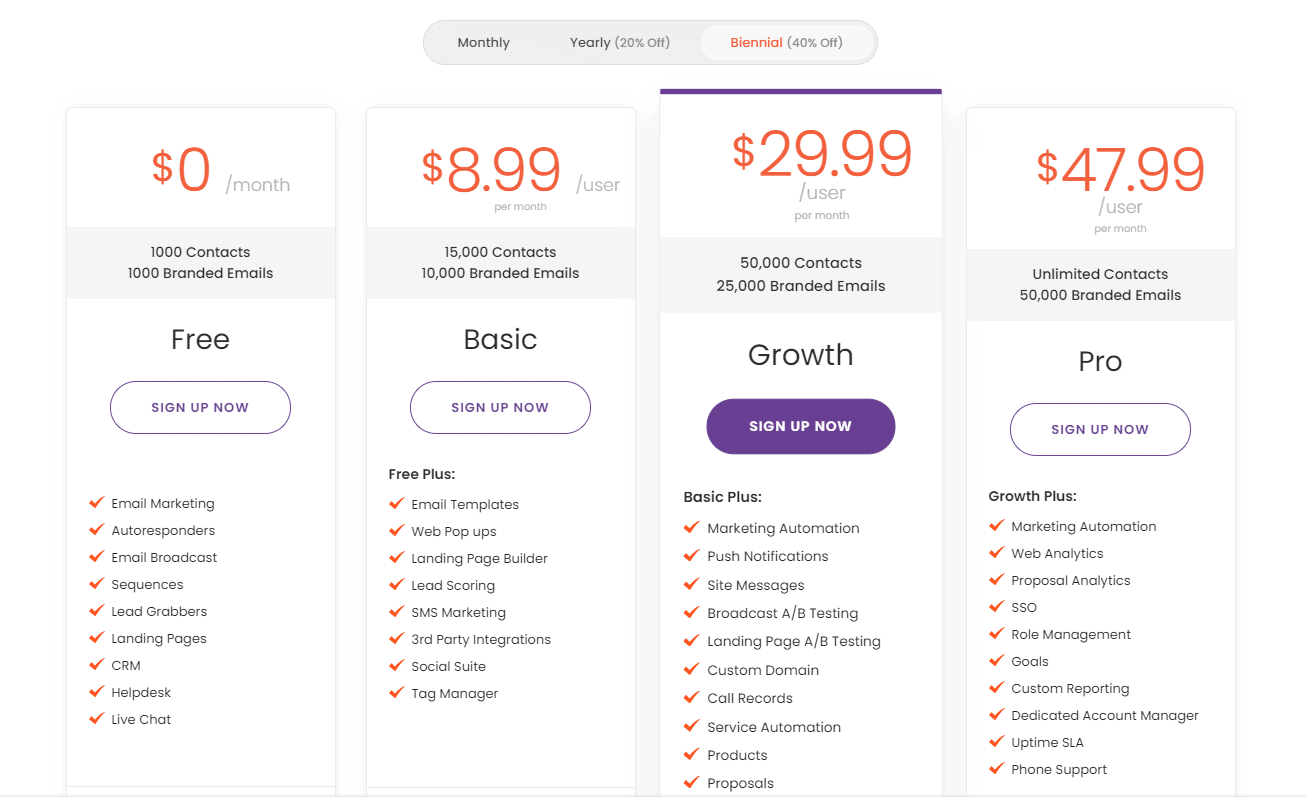
2. Close
Benefits:
- Pipeline view, voice call , Text messaging, tracking, and email campaigns functions are all available in one location in this start-up-friendly CRM.
- Pre-recorded voicemail saves time for sales reps, and predictive dialing improves sales agent efficiency by allowing reps to auto-dial several numbers. Many useful integrations are available.
- Mailchimp, Slack, Zendesk, Google Sheets, Facebook, and Zapier are only a few of the many useful integrations.
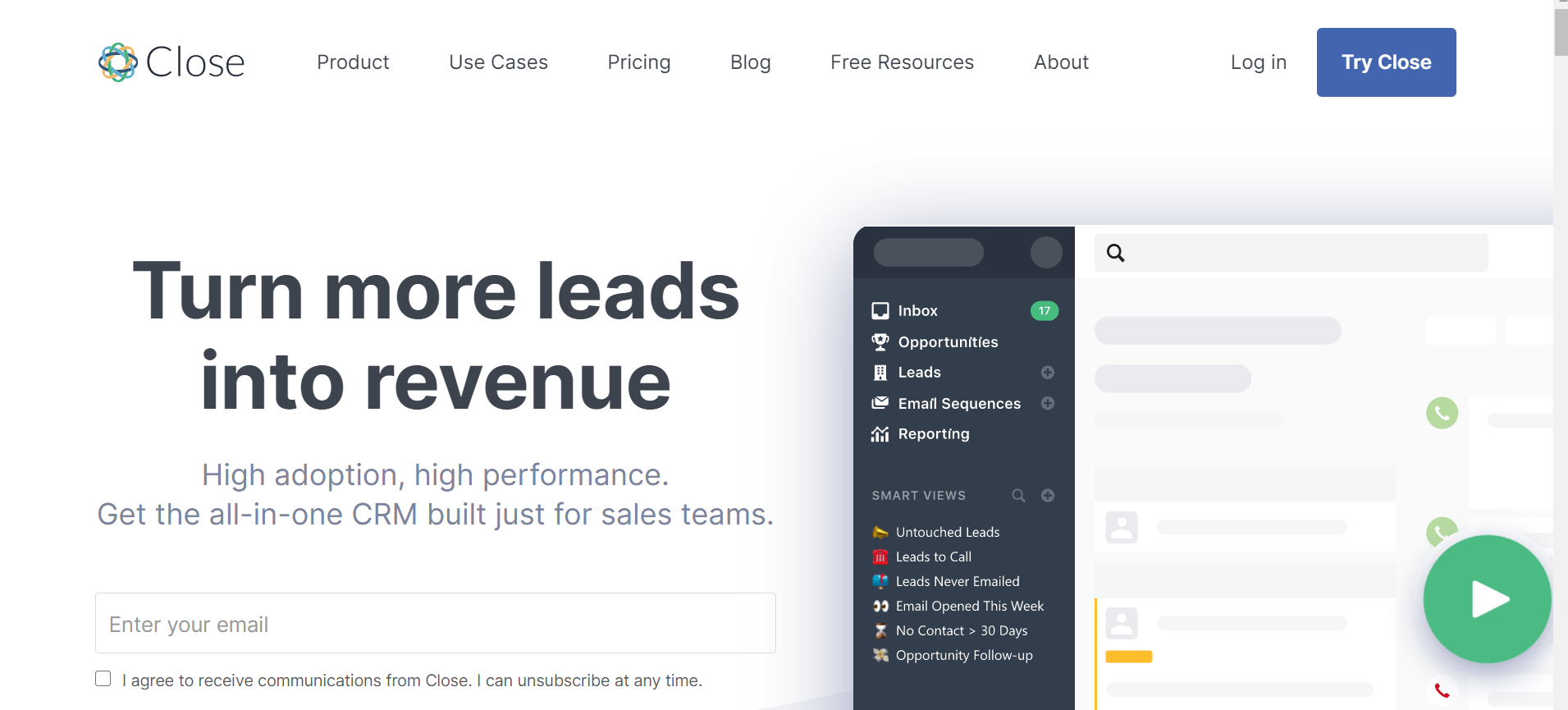
Drawbacks:
- Duplicate leads are commonly created when bulk data is imported from CSV files, necessitating manual cleanup.
Pricing:
- The starter package costs $29.75 per user per month when charged annually, and $35 per user per month when paid weekly.
- The basic plan costs $55.25 per user/per month if charged annually, and $65 if paid weekly.
- The Professional package costs $80.75 per user/per month if paid annually, and $95 if paid weekly.
- The business plan costs $123.75 per user per month, billed annually, and $145 per user per month, billed annually.
- The annual business plan is $123.75 per user/per month, and the monthly plan is $145 per user/per month.
3. Agile CRM
Benefits:
- Agile CRM is a downloadable, full-featured sales CRM for up to ten users that is developed specifically for start-ups.
- Contact management, marketing automation, real-time notifications, VoIP telecom, social suite, and email and web monitoring are all integrated into the platform.
- Agile CRM will manage all of your upcoming voice calls and follow-ups if you keep your appointment calendar online.
- In the app, you can easily connect documents to sales, businesses, contacts, and addresses.
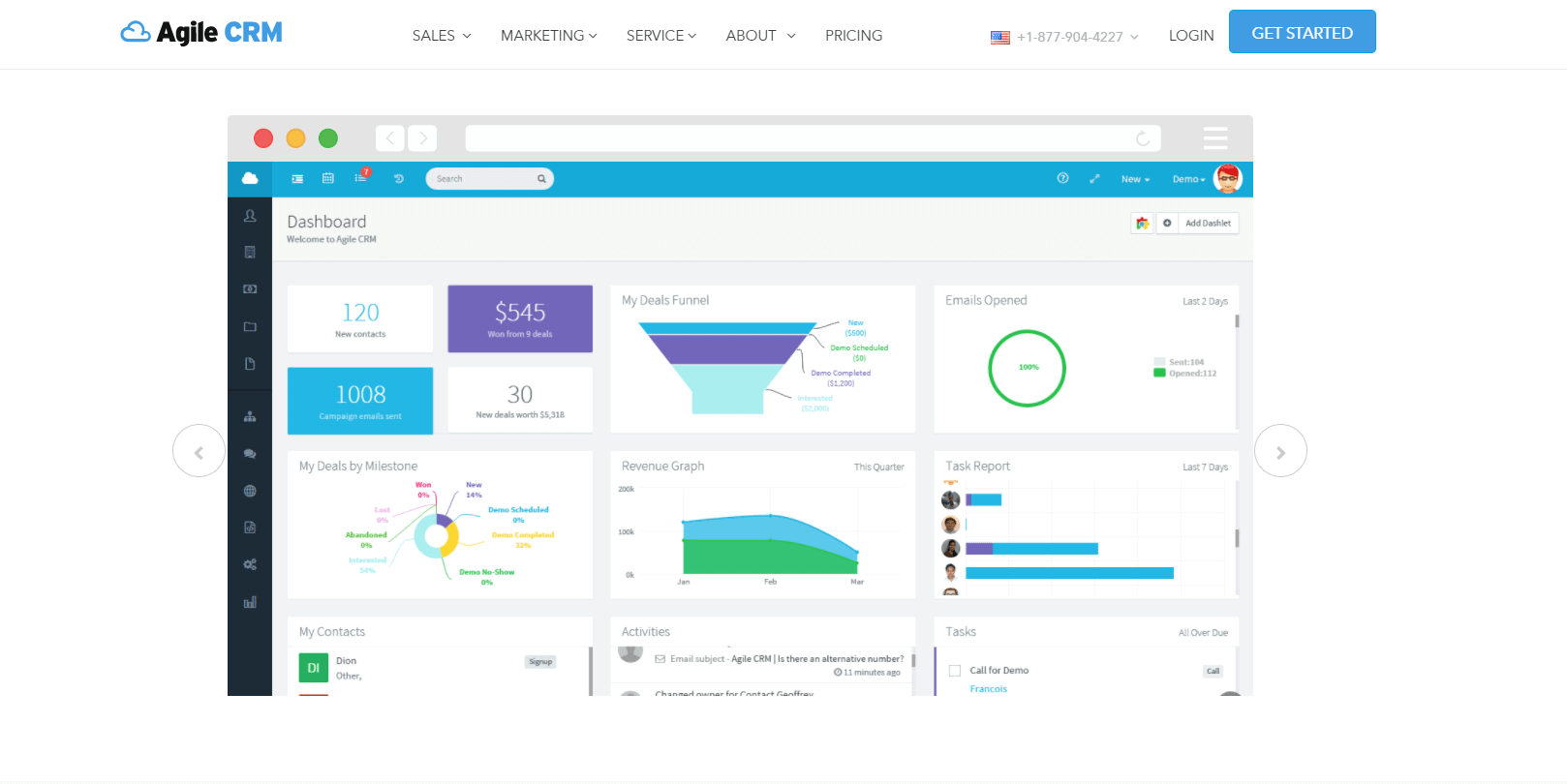
Drawbacks:
- When you update between models, the price rises significantly, which could trigger issues as your business expands.
- There aren’t a lot of customization options.
Pricing:
- Up to ten users can use the free version.
- The starter edition costs $8.99 a month per user.
- The regular edition costs $29.99 a month per user.
- The Business edition costs $47.99 a month per user.
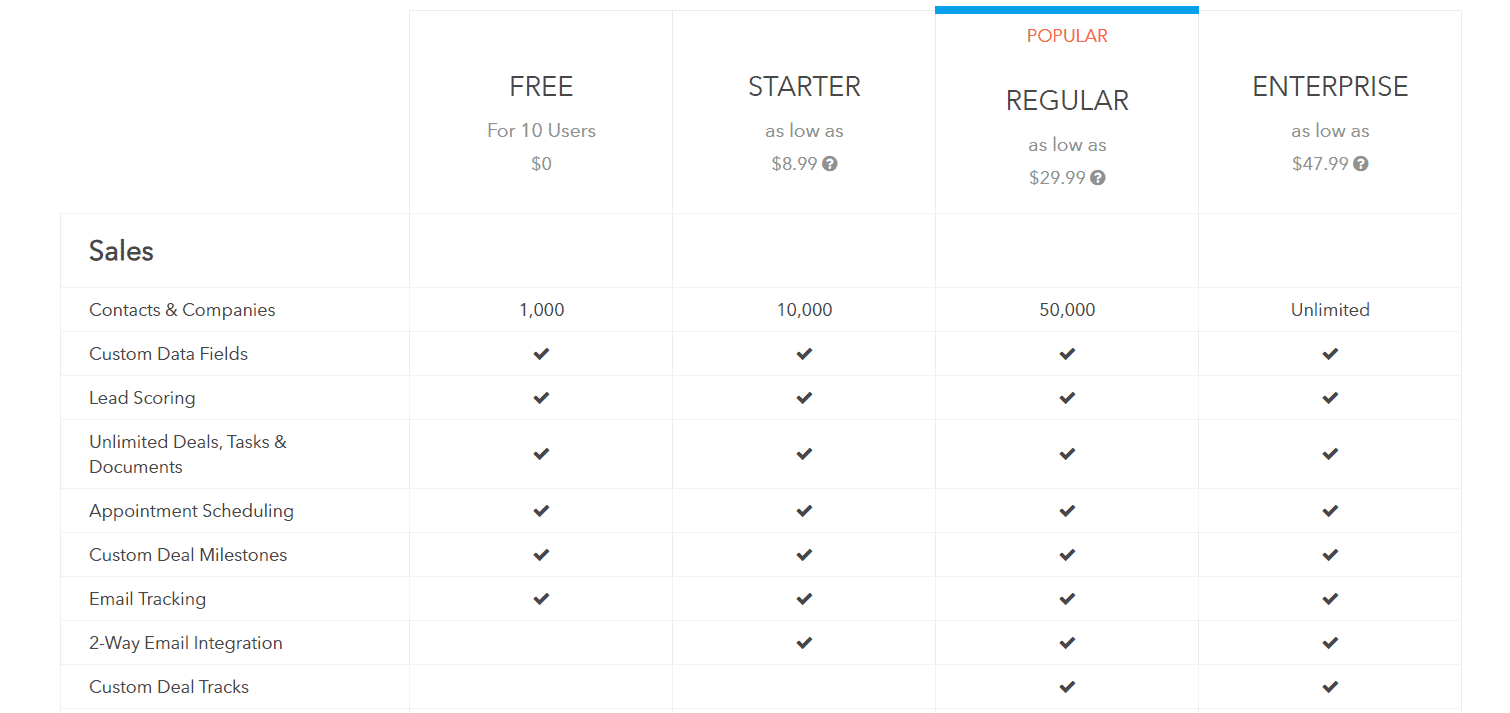
4. HubSpot CRM
Benefits:
- Maintains workflows for better project management; you’ll be able to delegate and monitor leads more efficiently, keep tabs on the sales process, and keep track of customer communications across channels.
- For qualifying start-up projects, the HubSpot for Start-ups program provides discounts of up to 90%, as well as customized training and support for start-up-friendly onboarding.
- It works for both G Suite and Microsoft Office, so it doesn’t matter which platform your company prefers.
- Zapier integration allows you to easily share data between apps (Google Sheets, Slack, Facebook Lead Advertising, and so on) to broaden functionality and assist your company’s growing operations.
- HubSpot CRM is free, so you can get started right away, while paid HubSpot add-on packages add features like monitoring, artificial intelligence, and advanced automation.
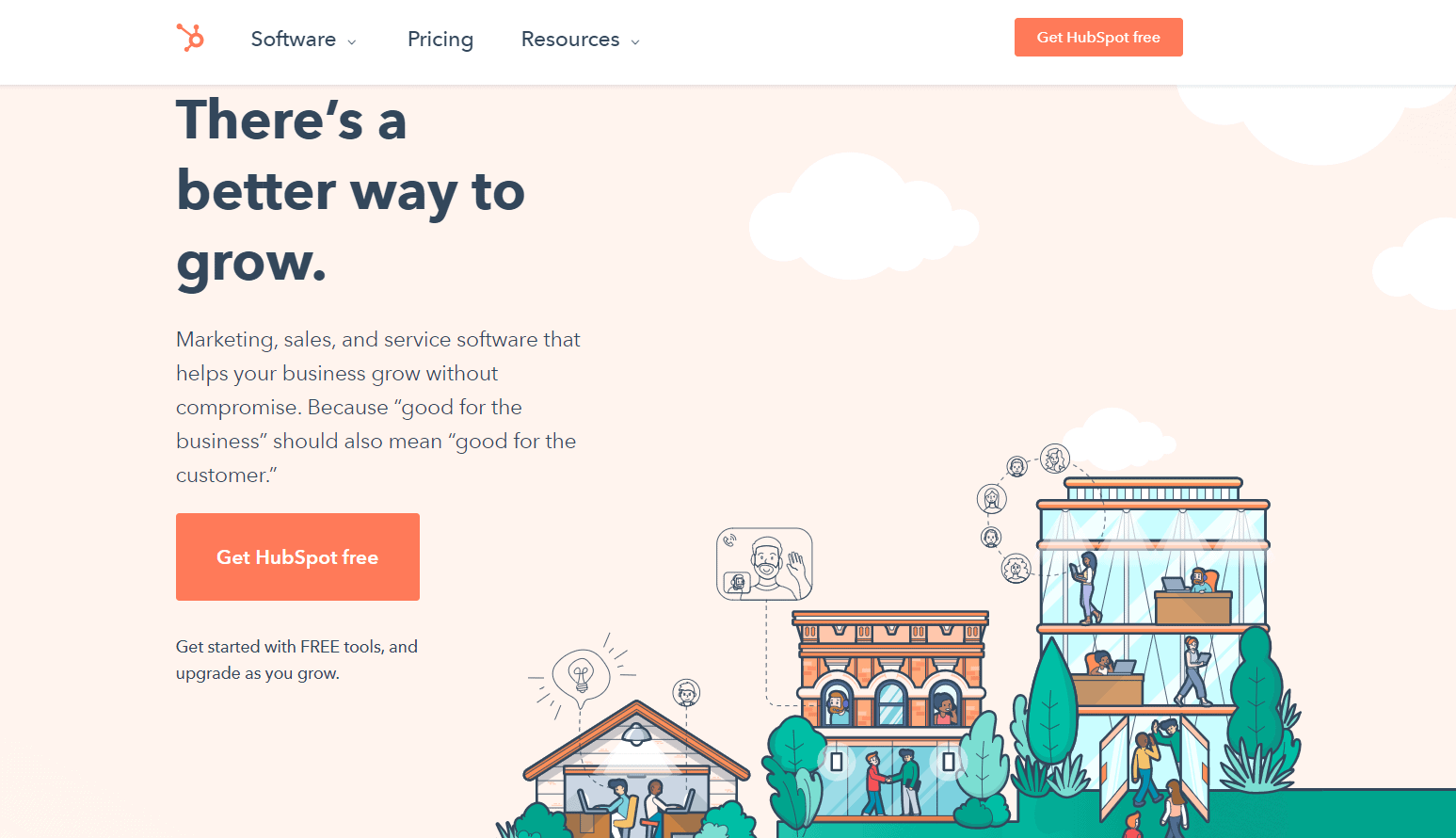
Drawbacks:
- Customization choices are small, which can be a problem for niche businesses.
- The features of the free CRM are numerous, but they are restricted, and you will need to purchase Sales Hub or one of HubSpot’s other add-on packs to expand the CRM’s capability.
Pricing:
- HubSpot CRM is available for free and has an infinite number of users.
- Add-on packages for Marketing Hub, Sales Hub, and Service Hub are $50 per user/per month, billed annually.
- HubSpot CMS costs $300 a month and is paid on a monthly basis.
- Monthly billing for the all-inclusive Starter Growth Suite begins at $113 per user/per month.
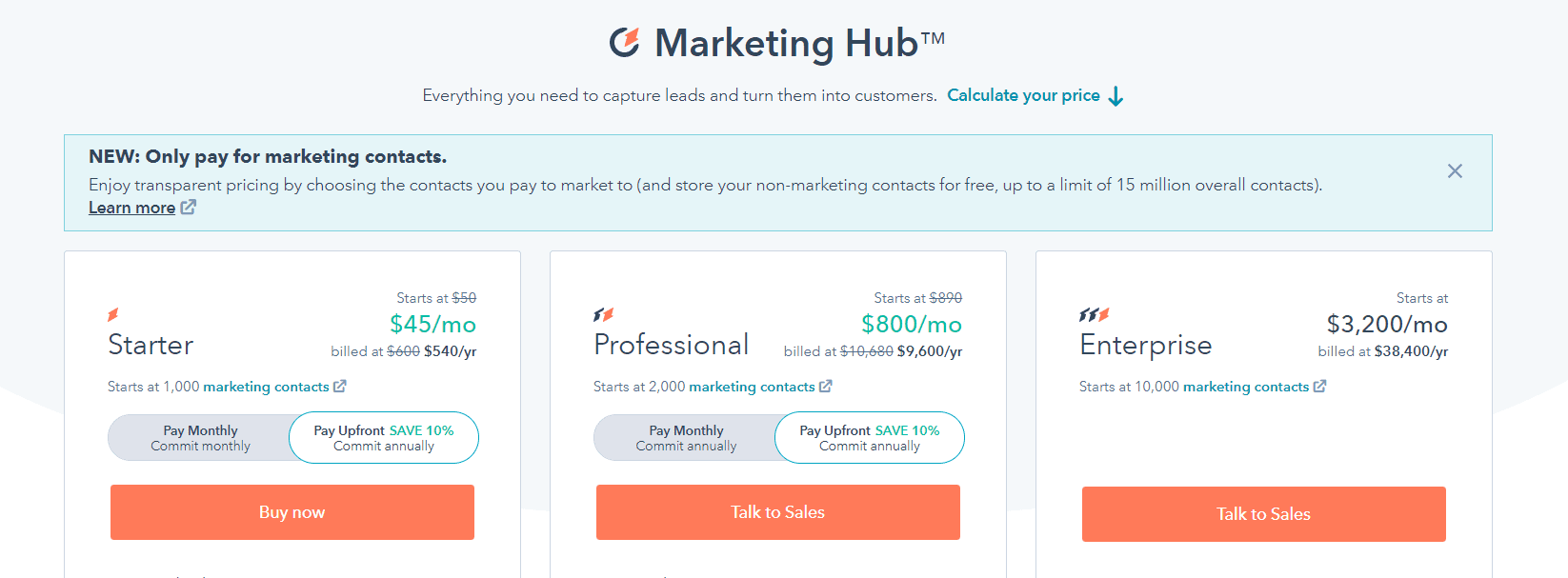
5. Copper
Benefits:
- Copper has features that are useful to startups, such as automatic data entry, smart recognition, lead and customer monitoring, and sales interaction and opportunity optimization.
- Data import from Gmail and other Google resources you (probably) use every day is seamless because it’s natively integrated with G Suite.
- Weekly pipeline progression reports with drag-and-drop features, custom filters, and warnings when deals may be going stale boost team and workflow management.
- Provides a visually appealing sales pipeline that allows for fast lead monitoring and management during the certification process.

Drawbacks:
- Since there is a learning curve, be aware that you will need to set aside some time to execute it effectively at your startup.
- Importing data from Excel will cause problems, so you’ll have to manually type information into Copper.
Pricing:
- The basic plan costs $19 a month per user, billed annually.
- The Professional package costs $49 a month per user, billed annually.
- The annual fee for the business plan is $119 per user/per month.
6. Zoho CRM
Benefits:
- Zoho CRM is a simple user interface with customizable modules, automation, and social media functionality aimed at start-ups and small businesses.
- You can use it to describe the workflows, rationalize daily activities, and manage leads.
- You can easily move your data from databases and contact management tools to the Zoho platform thanks to data porting functionality.
- Incorporates with Twitter, Facebook, and Google+ for fast and easy outreach and engagement with leads at just the right moment.
- There’s an unlimited CRM for up to three users, which is great news for super-lean startups, but it’s limited in terms of functionality, with less customisation and no mass messaging option, as one would imagine.
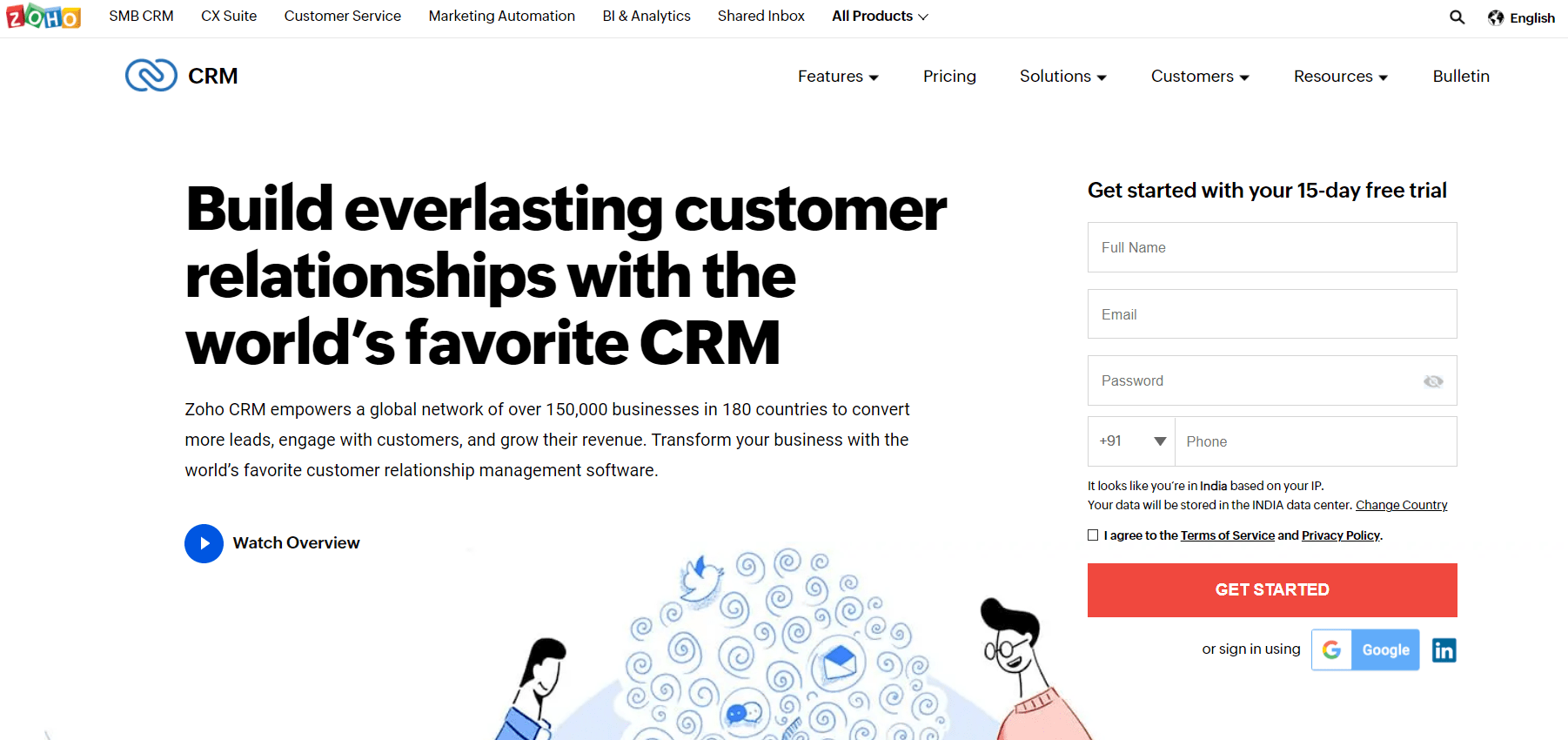
Drawbacks:
- Person email monitoring and lead alerts are not available in Zoho, which could be restricting if you rely heavily on one-on-one engagement.
- Add-on components are priced separately from the CRM item you already own, so costs will add up quickly if you choose to extend your platform’s capabilities.
Pricing:
- The free version is intended for up to three users and is geared toward small businesses.
- The basic edition costs $12 a month per user and is billed annually.
- The Business edition costs $35 a month per user and is billed annually.
7. SugarCRM
Benefits:
- Provides a complete CRM solution that includes advertising, sales, and customer support, with a focus on cross-team sharing of appropriate and valuable data.
- With a drag-and-drop flowchart, you can map consumer journeys to get your messaging right and automate critical business processes like leads routing, quote analysis, and confirmation.
- SugarCRM has a huge user group, so you can talk shop with other start-ups.
- Provider customer service is responsive, which is a big benefit for start-ups who need fast responses and problem resolution periods.
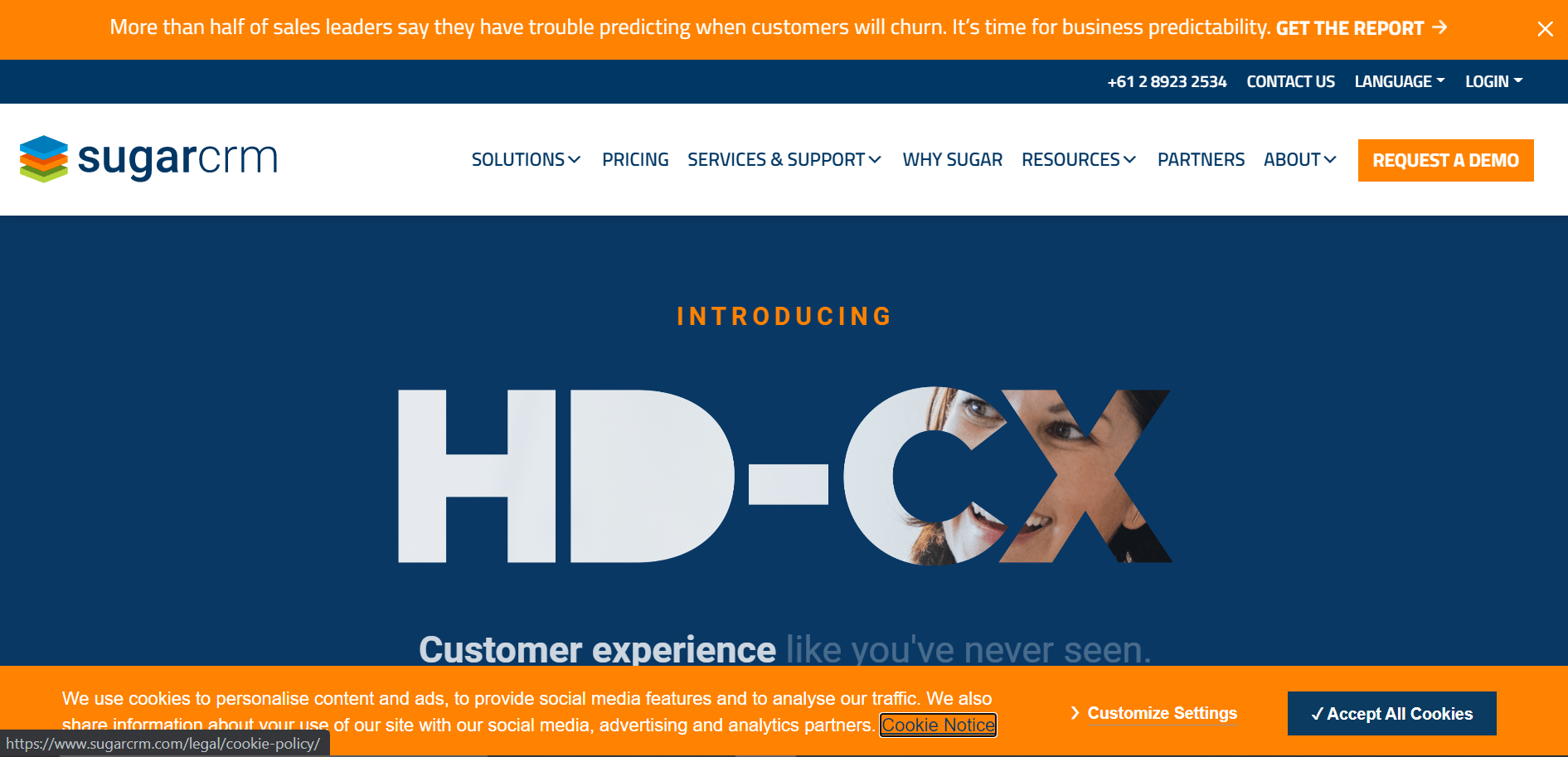
Drawbacks:
- SugarCRM needs a team of at least 10 people to use, so it may not be suitable for very small start-ups.
- Since the SugarCRM app has its origins in the open-source developer community, it has a moderate learning process, which means you’ll need to set aside some time to get to know the platform.
Pricing:
- Sugar Professional costs $40 per user per month (minimum of 10 users) and is billed annually.
- Sugar Enterprise costs $65 per user per month (minimum of 10 users) and is paid annually.
- The Sugar Serve plan costs $80 per user per month (with a minimum of 10 users) and is billed annually.
- Sugar Sale costs $80 per user per month (minimum of 10 users) and is billed annually.
- The Sugar Market strategy costs $1,000 (unlimited users, ten devices).
- Sugar Business costs $1,000 a year (unlimited users, 10,000 contacts per month).
8. Bitrix24
Benefits:
- Bitrix24 is a very well, all-in-one CRM that manages revenue management and marketing strategies, as well as facilitating successful team collaboration.
- Allows you to build an infinite number of job and user groups, as well as set up an HR support desk and centralize data management and storage throughout the app.
- Bitrix24 has a free version for up to 12 customers with 5 GB of storage, which is aimed at start-ups and comes with HR, payroll, and other features.
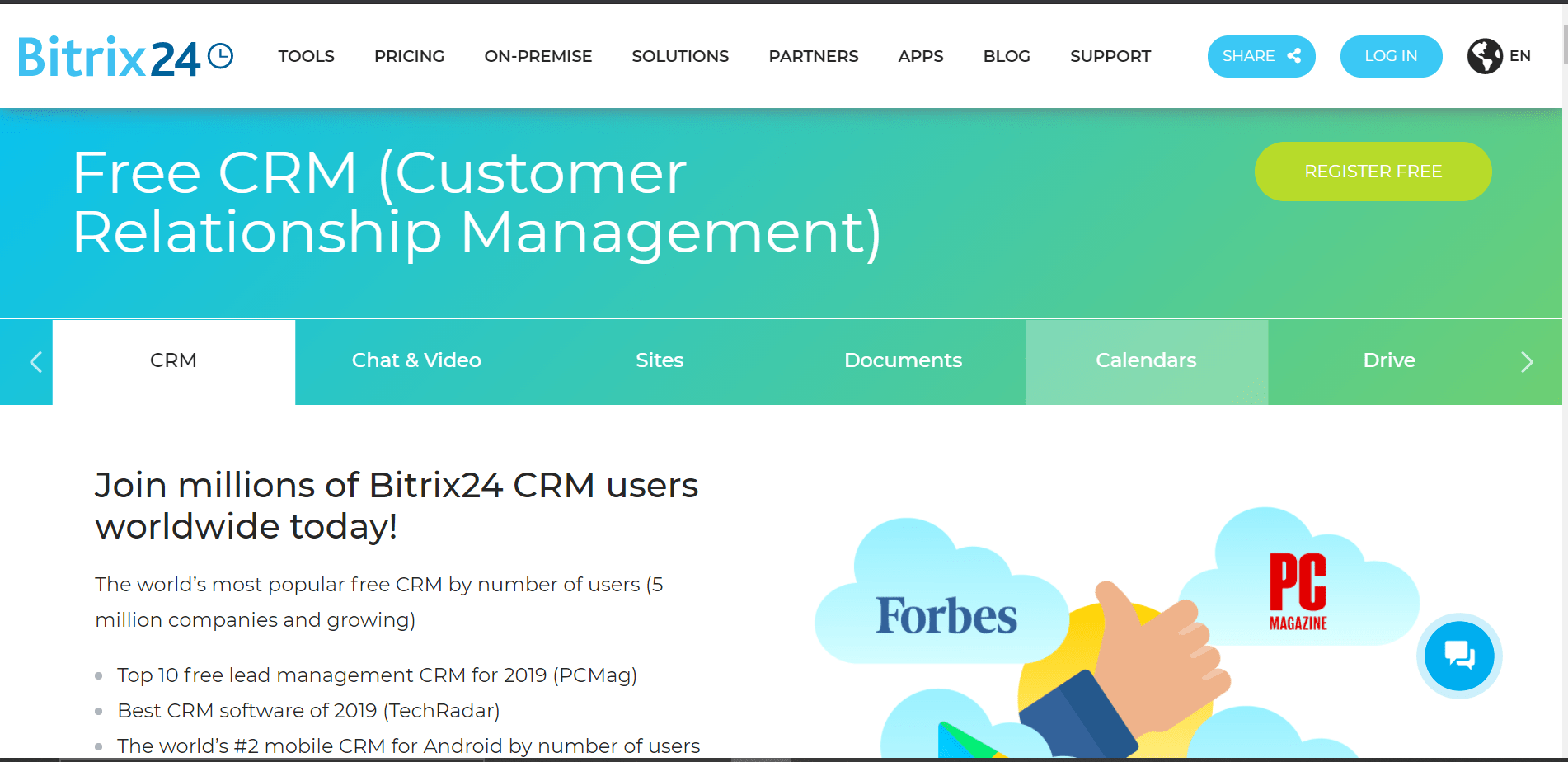
Drawbacks:
- The UI is also a little “maximalist,” which can make it difficult to navigate the program.
- For those start-ups, the learning curve and software customization/configurability weaknesses could be a concern.
Pricing:
- For up to 12 users, a free starter business tool suite is available.
- The Start+ plan costs $19 per month billed annually or $24 per month billed monthly for up to two users.
- CRM+ is $55.20 per month billed annually or $69 per month billed monthly for up to 6 users.
- The Project+ package costs $55.20 per month billed annually or $69 per month billed monthly for up to 24 users.
- The standard plan costs $79.20 per month billed annually or $99 per month billed monthly for up to 50 users.
- For unlimited users, the Skilled package costs $159.20 per month billed annually or $199 per month billed weekly.
9. Pipedrive
Benefits:
- CRM that is both versatile and performance, and is structured to assist startups in getting organized.
- Construct several sales pipelines, each with its own set of stages that can be customized to fit the needs of a particular product or service.
- Reminders, updates, and follow-up updates hold your attention on the task at hand. Build custom database files and workflows for your specific business processes.
- The implementation process is accelerated by a low learning process.

Drawbacks:
- Since Pipedrive lacks an internal emailing framework, you’ll have to rely on its Mailchimp integration.
- When a deal is found, won, or lost, Pipedrive Dealbot sends you a notification across both apps, but the message always gets lost in the average high-activity Slack chat.
Pricing:
- The Critical plan costs $12.50 per user/month if charged annually, or $15 if paid weekly.
- The Advanced plan costs $24.90 per user/month if paid annually, or $29 if paid weekly.
- The Professional package costs $49.90 per month per user billed annually and $59 per month billed weekly.
- The Business plan costs $99 a month per user and is billed annually.
10. Streak
Benefits:
- Built right into Gmail, where you actually already do the majority of your work; Streak has mobile and desktop applications with all of the G Suite integrations, so you can still access your work mailbox and other resources you need (all you have to do is download the Chrome Extension and/or the mobile app).
- Email integration collects data from existing contacts and emails automatically and sends you updates as leads move into your pipeline.
- Maintain in-app notes, centralize record-keeping, filter information on your contact correspondence, and assess whether or not leads have accessed your messages.
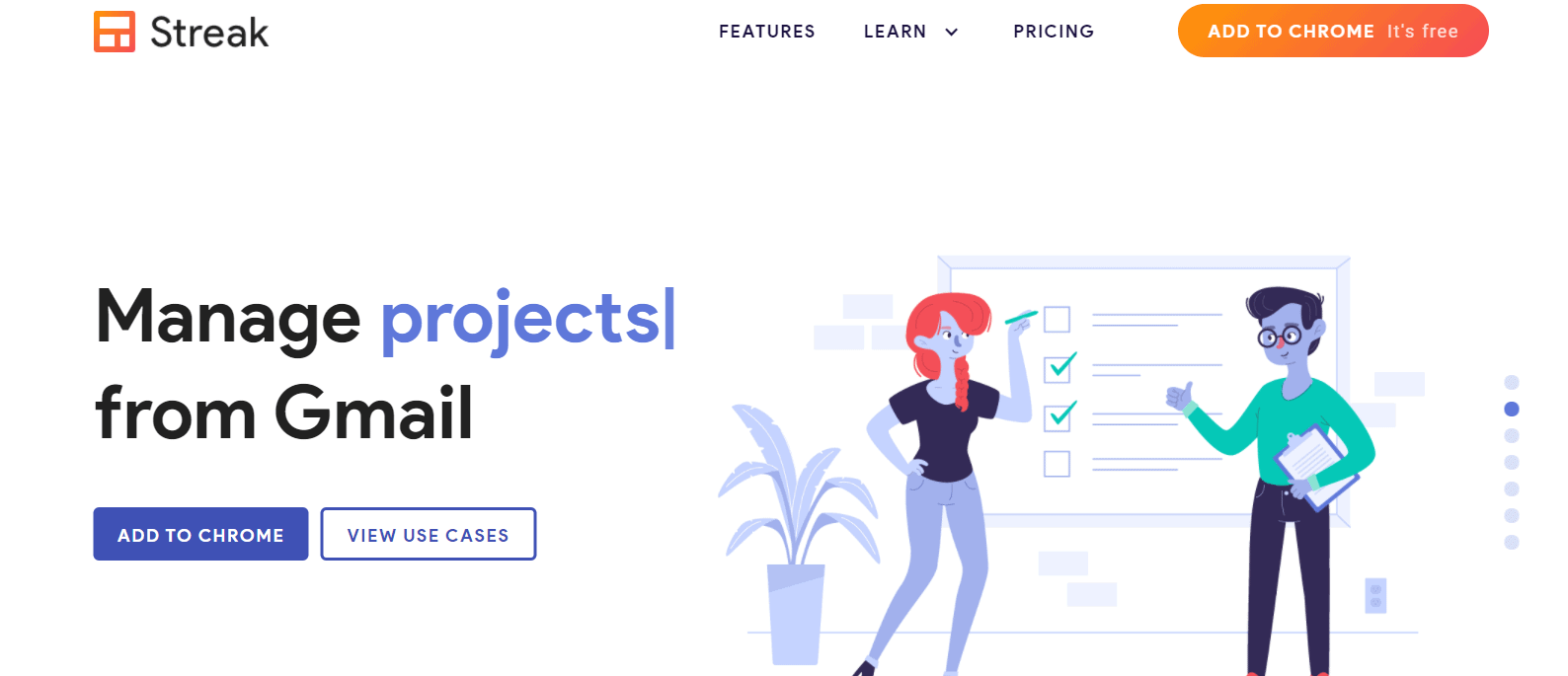
Drawbacks:
- Streak is a Chrome Extension, so you’ll have to download and install it again if you switch devices.
- Paid models are priced similarly to more feature-rich CRMs, which could be a deal-breaker for others.
Pricing:
- It is possible to download a free personal edition for personal use.
- The Professional package costs $49 a month per user, billed annually.
- The Business plan costs $129 a month per user and is billed annually.
11. Nimble
Benefits:
- Sales optimization, contact management, cross-channel correspondence tracking, deal and task management, and more are all included in this basic CRM for start-ups.
- Easily centralized data storage; for example, by simply entering your email account, you can immediately auto-sync all of your contacts.
- Nimble is well-known for its social media-focused features, such as social search and effective advertising tools.
- Nimble is known for its social media-focused features such as social search and market segmentation software.
- Integrates with Office 365 and G Suite, allowing you to easily import and arrange contacts from your existing network
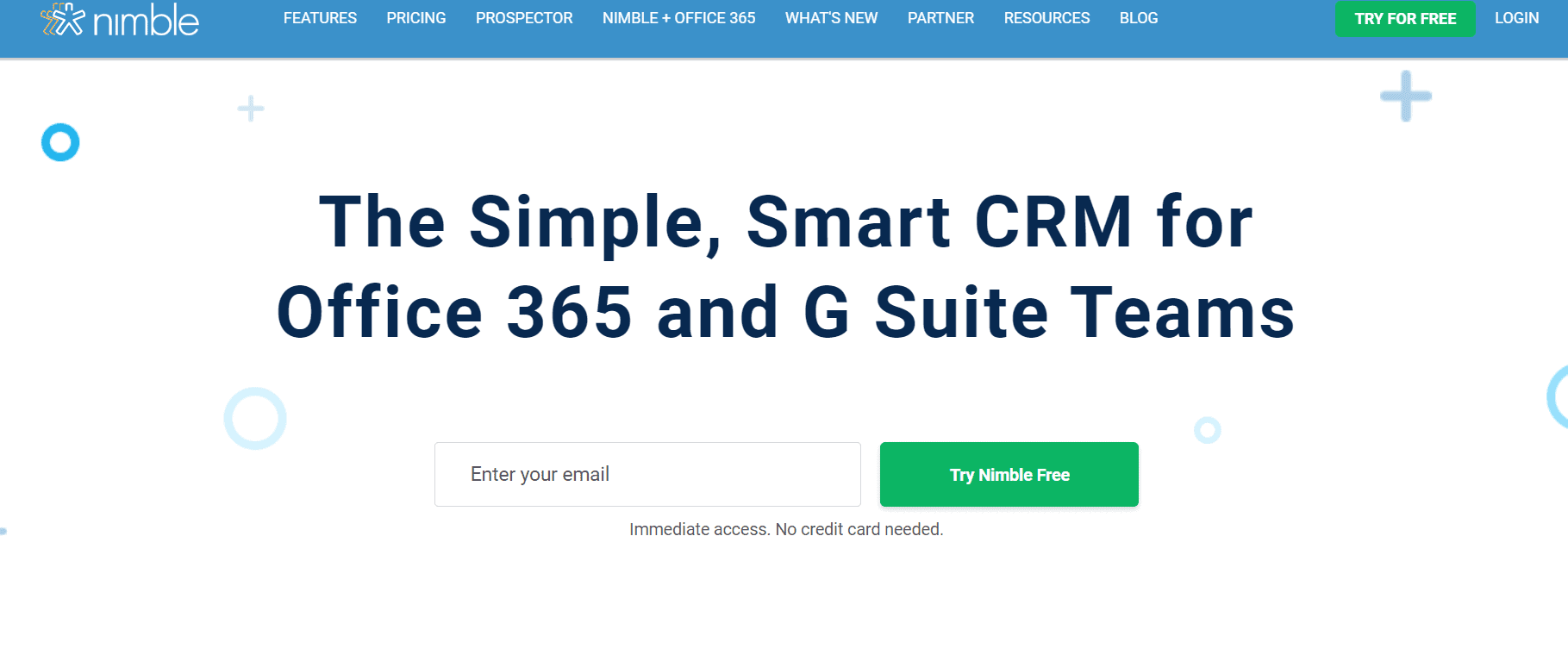
Drawbacks:
- Nimble’s Android app, according to many users, isn’t up to par with its iOS equivalent.
- Nimble doesn’t allow you to delete several messages at once; instead, you must do it one page at a time, which can be inconvenient if you’re trying to get rid of a lot of stuff.
Pricing:
- The Contact version costs $12 per user, per month, and is paid on a monthly basis.
- The monthly fee for the business version is $25 per user/per month.
12. Less Annoying CRM
Benefits:
- Pipeline management, lead monitoring, communication, and follow-up updates are all included in this affordable, start-up-ready CRM.
- The standard ‘workspace’ view shows activity, such as the number of interactions at each stage of the buying process, as well as a summary of the day’s planned events, such as meetings, and assignments, which can be checked off like things on a to-do list, resulting in increased productivity.
- Automates the sales force efficiently.
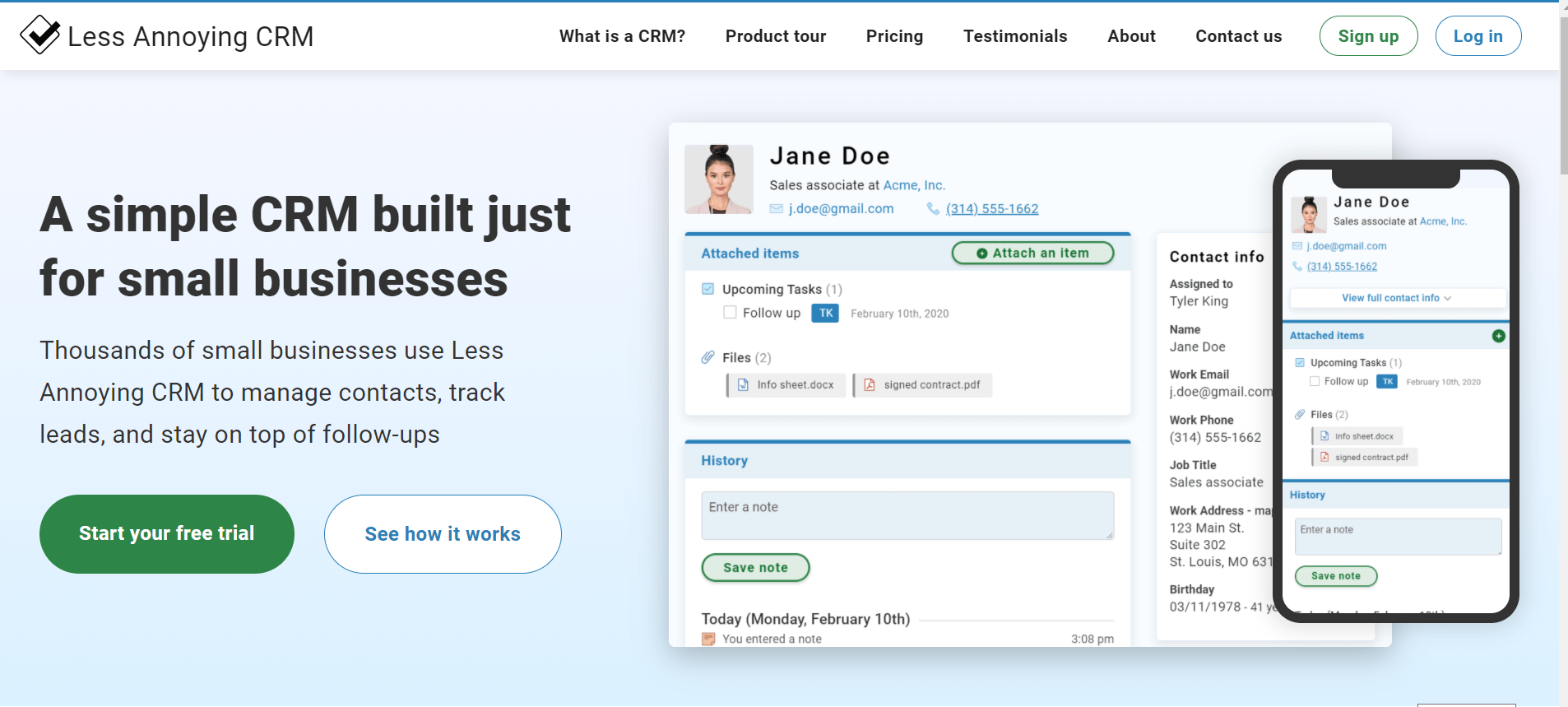
Drawbacks:
- The maximum number of contacts you can enter into the CRM before it begins to lag is 50,000.
- Notifications for apps are sent via Sms and email instead than in-app, which may cause some misunderstanding.
Pricing:
- $10 a month per user, billed on a monthly basis.
13. Insightly
Benefits:
- CRM app with a simplified, user-friendly interface for monitoring contacts, messages, projects, sales, and documents all in one place.
- The Insightly sidebar is a Chrome extension that allows you to save Gmail messages directly to your CRM for easy communication cross-reference.
- CRM features such as handling contacts and customer info, as well as monitoring possibilities, provide a seamless pipeline integration (aka sales leads)
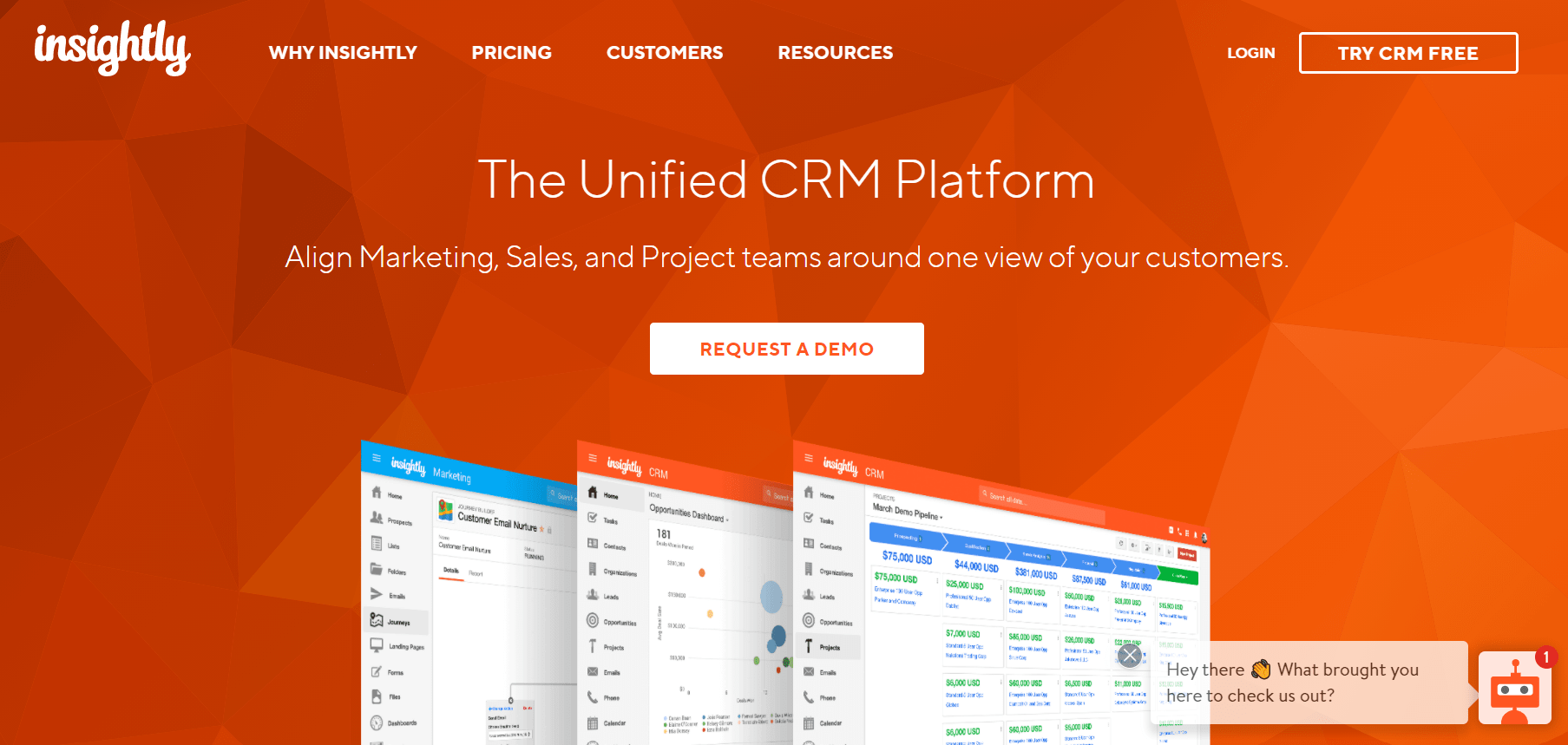
Drawbacks:
- Google Calendar’s two-way sync can be a little wonky at moments, with events not showing up for other members of the team.
- The number of custom fields for contacts is limited to 25.
Pricing:
- For up to two consumers, the “no-frills” plan is eligible.
- The Plus plan costs $29 a month per user, billed annually.
- The Technical package costs $49 a month per user, billed annually.
- The enterprise plan costs $99 a month per user, billed annually.
14. Nextiva
Benefits:
- Full-stack business suite with CRM platform for advertising, distribution, and customer service that is VoIP-centric.
- With consolidated data, comprehensive reports on sales activity, and more, you can stabilize your startup to try and justify everyday activities.
- With chat, telephony, analytics, and surveys all in one location, it was designed with customer-facing roles in mind.
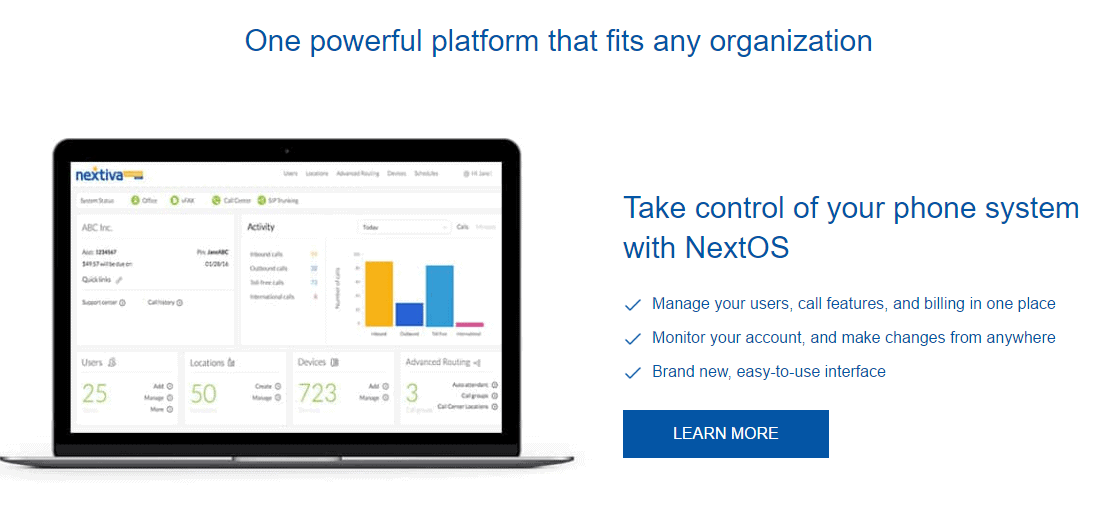
Drawbacks:
- Implementation can take a long time.
Pricing:
- The basic plan costs $35 a month per user for 1-4 users and is billed annually.
- For 1-4 users, the Pro package costs $38 per month, billed annually.
- For 1-4 customers, the Business package costs $55 a month, billed annually.
- Contract lengths range from 12, 24, and 36 months.
15. Freshsales
Benefits:
- With essential startup features including lead management, email management, and pipeline management, it’s simple to get up and running.
- Lead capture allows you to automatically collect leads from emails, as well as create your own lead scoring parameters to keep track of who does what and who’s more likely to switch.
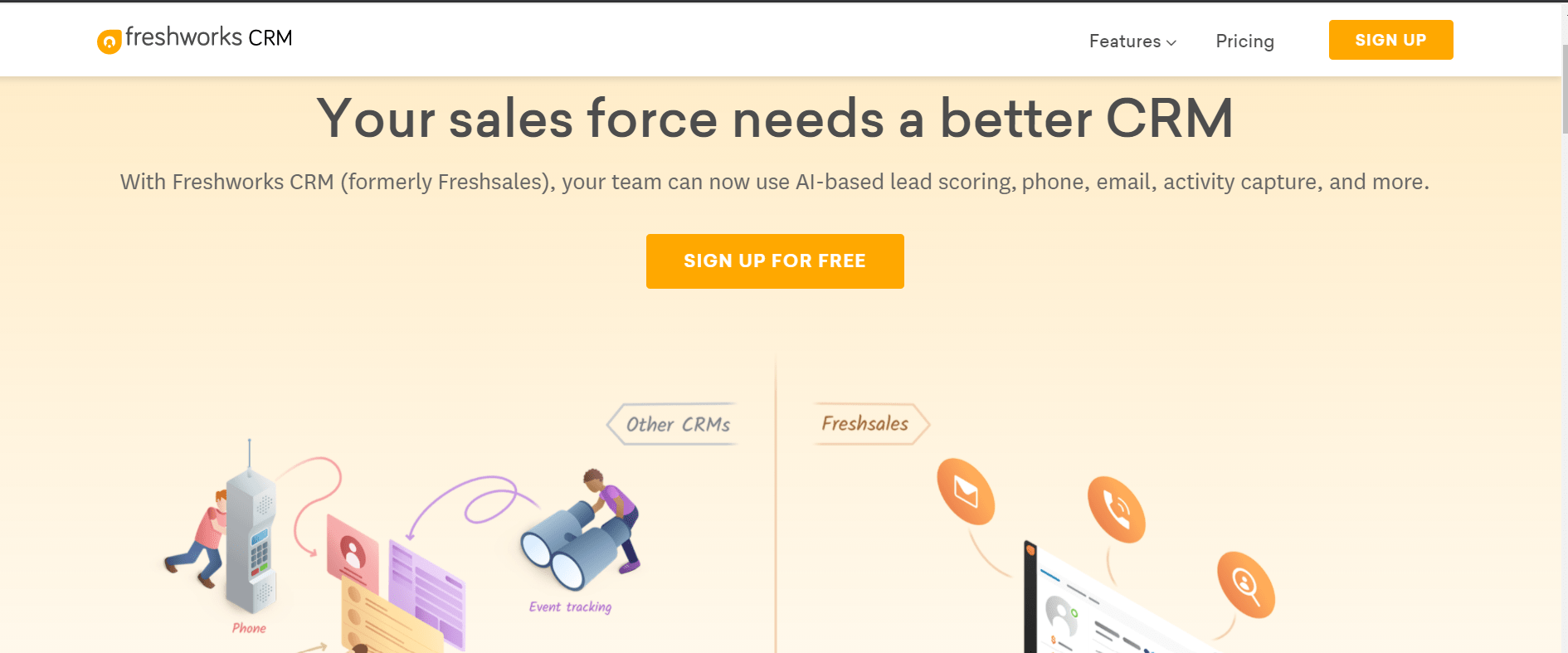
Drawbacks:
- There is a substantial learning curve once you begin to extend the use of Freshsales and gain access to more complex features.
- Sorting and filtering activities aren’t as easy as they should be.
Pricing:
- Blossom’s small team plan costs $12 per customer per month, billed annually.
- For growing teams, the Garden plan is $25 per user/per month, billed annually.
- For broad teams, the estate package is $49 per user/per month, billed annually.
- Forest’s business plan costs $79 per customer, per month, and is billed annually.
16. FreeAgent
Benefits:
- Customer interactions are collected through networks, and data is automatically centralized and modified.
- Real-time sync with Gmail, Twilio, Office365, and Google Calendar, as well as two-way Mailchimp sync, are just a few of the integrations that help Free Agent fit into your existing work resources.
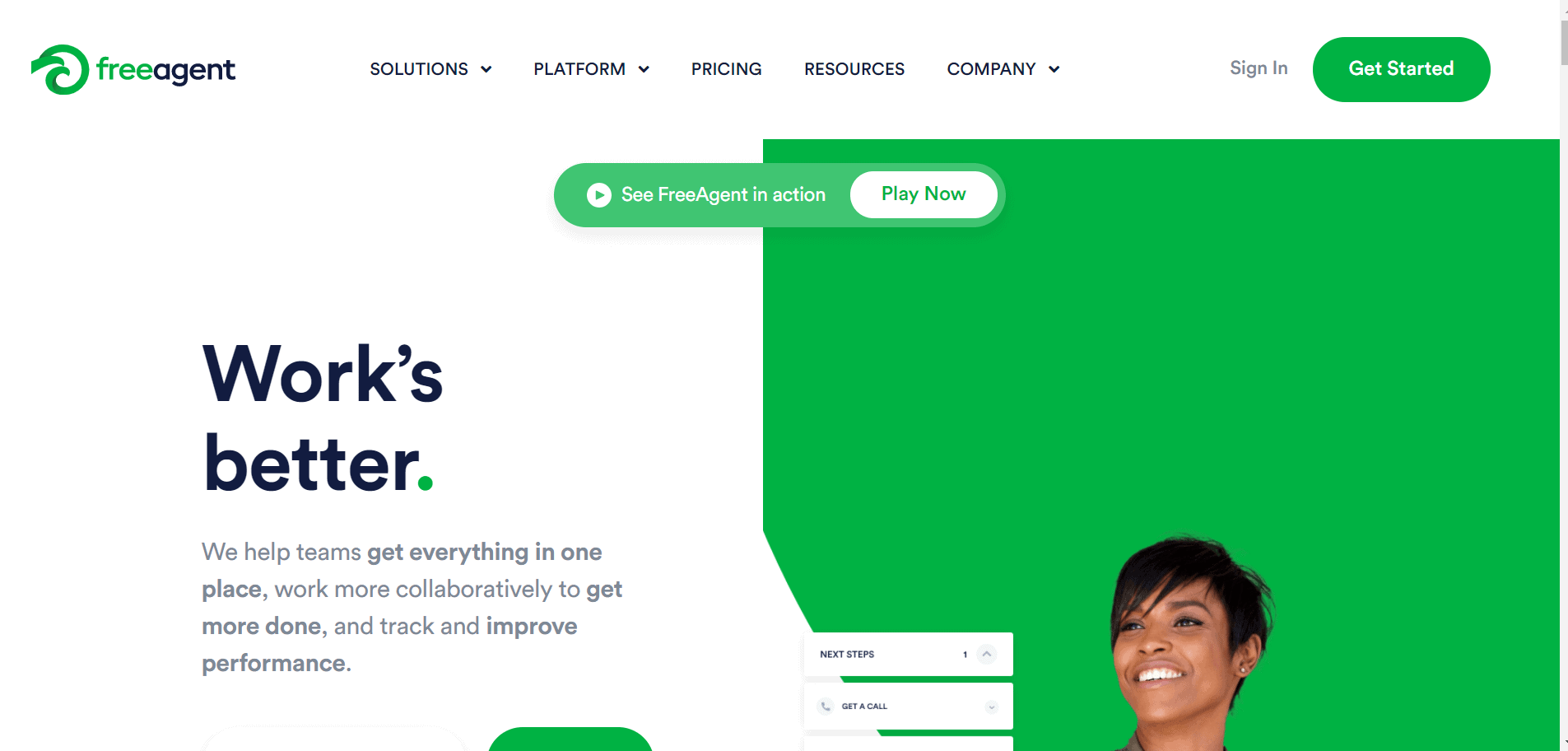
Drawbacks:
- Price can be a deal-breaker for some startups, specifically given the significant price difference between first and second paid plan tiers.
Pricing:
- Essential’s monthly package costs $25 per user and is billed annually.
- The Professional package costs $75 a month per user and is billed annually.
- The Business plan costs $135 a month per user and is billed annually. Unlimited plan, billed monthly, is $250 per user/per month.
17. Keap (formerly known as Infusionsoft)
Benefits:
- CRM with a sales pipeline, contact management, and tools for designing marketing plans and repeatable sales processes for small companies.
- Provides marketing and sales automation software with a drag-and-drop platform that enables developing custom automated processes easily.
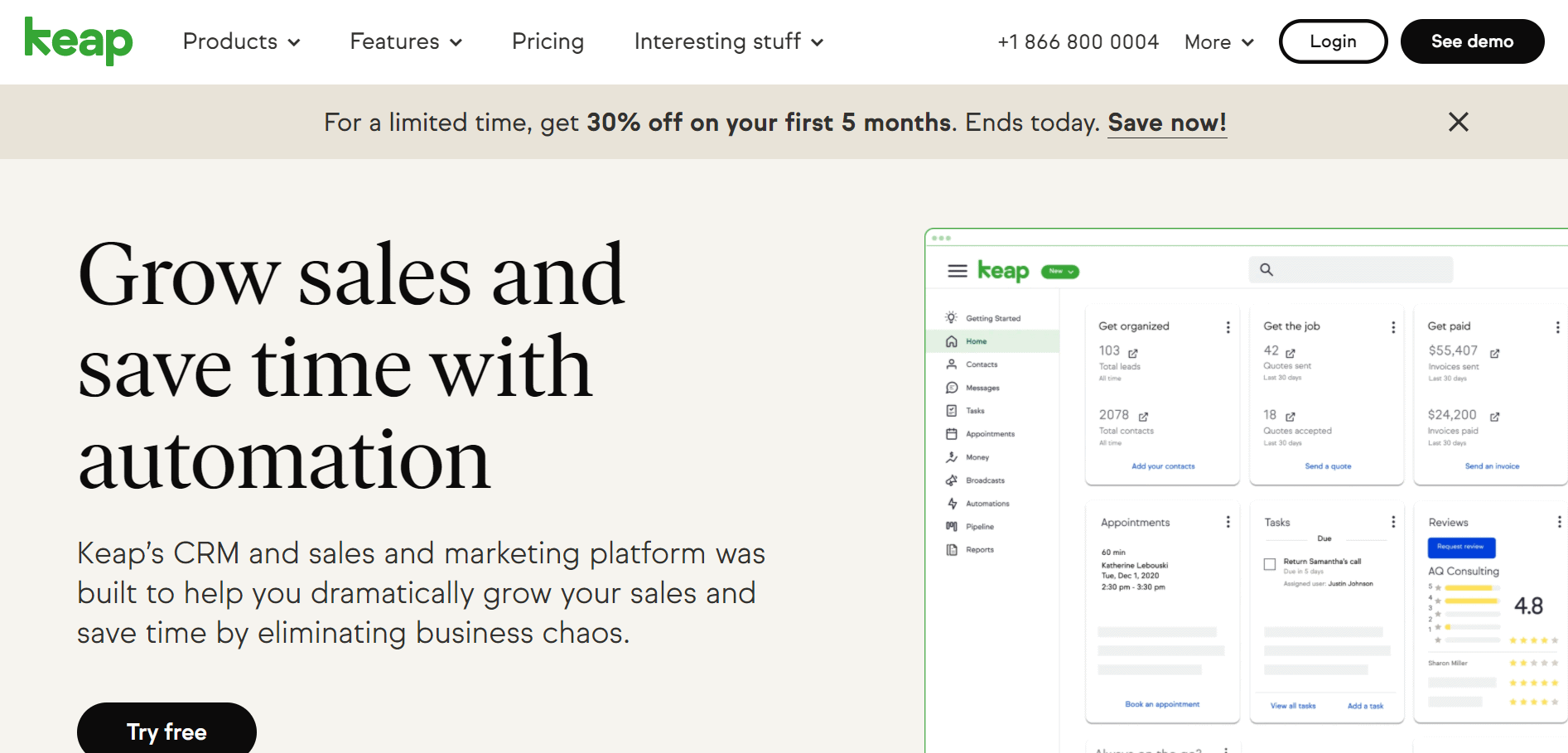
Drawbacks:
- Keap has a lot of features, and you might not need them all; this is a challenge because vendor’s pricing tiers aren’t very customizable, and the entry-level package is still very costly.
Pricing:
- The Grow plan costs $49 per user, per month, and is billed on a monthly basis.
- The Pro plan costs $149 per account, per month, and is billed on a monthly basis.
- The Infusionsoft plan costs $199 per account, per month, and is billed on a monthly basis.
18. Salesflare
Benefits:
- B2B start-ups will benefit from this intelligent, full-featured CRM.
- Share information with customers and vendors without having to manually update their information; an automated address book and real-time sync keeps a record of any contact interaction updated.
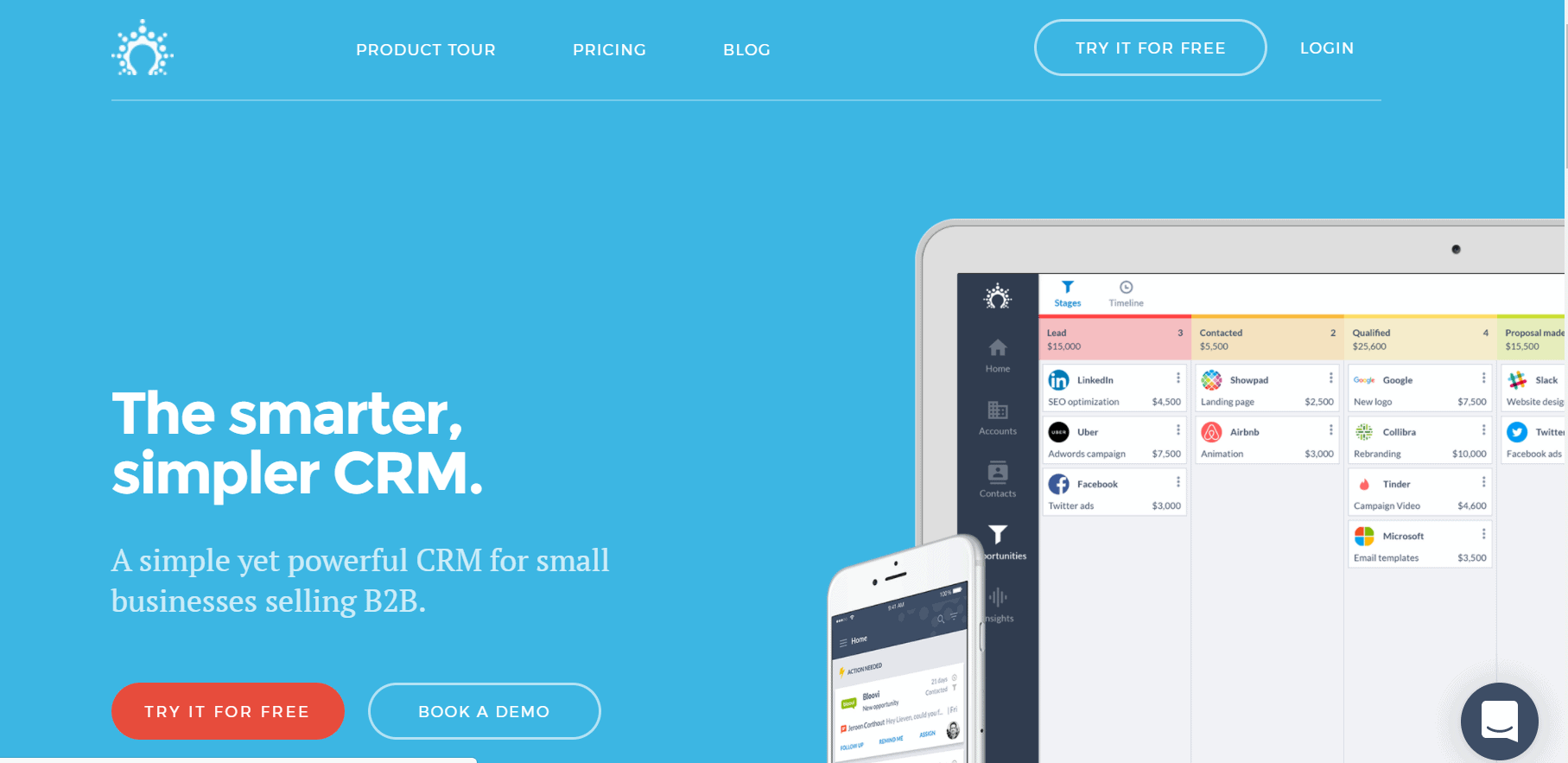
Drawbacks:
- It’s easy to get up and working, but there are a lot of features to think about.
Pricing:
- The single pricing package is $30 per user/per month for annual billing and $35 per user/per month for monthly billing.
Why Do Start-ups Need a CRM?
If you’re working with clients on a daily basis and want to better satisfy their requirements, CRM is a must-have for your startup.
You can’t overestimate the value of a CRM in monitoring your clients’ data: every transaction is recorded in a single customer record, and every member of the team can see the entire background.
Articles, charts and graphs, electronic mail, and a phone network are among the tools used by start-ups in their everyday sales operations.
Trying to juggle all of these resources on a busy day—which is almost every day—can exhaust your sales reps and sap your team’s efficiency.
Sales reps need a single tool, rather than several tools, to help a startup remain nimble and move quickly. This allows them more time to sell. The all-important tool is a sales CRM.
It keeps track of your contacts, allows you to make phone calls, assists you in sending and tracking emails, produces reports, and gives you a good picture of your sales pipeline.
This implies you can concentrate on stabilizing and scaling your start-up to greater heights while your salespeople focus on closing the next deal.
Quick Links:
FAQs | Best CRM for Startups
👉What is a CRM startup?
A customer relationship management system (CRM) assists the startup in organizing contacts, determining who your customers are, generating data, saving time, and the revenue. You should assume simplicity when it comes to selecting a CRM.
🤑What is the most affordable and best CRM for startups?
EngageBay is a famous and efficient all-in-one marketing, sales, and CRM software that is used by over 29500 growing businesses all over the world.
🔥Which are some other good CRM for startup businesses?
Apart from the ones listed above, AgileCRM, Zoho, salesfire, copper, and keap are among the CRMs that I find useful.
🤔What are the top 5 CRM systems?
The top systems are Really Simple Systems CRM, Pipedrive, Zoho, Insightly, Nutshell.
👏Does Google have a CRM software?
Salesmate's Google CRM lets you create custom data reports using Google data studio. Get powerful insights and make data-driven decisions to increase your sales.
😍How do I get CRM certified?
To earn the certification, you must pass two exams: the Microsoft Power Platform Functional Consultant exam and the Microsoft Dynamics 365 Marketing exam, both of which cost $165.
Conclusion | Best CRM for Startups 2026
EngageBay proves to be a famous and efficient all-in-one marketing, sales, and CRM software that is used by over 29500 growing businesses all over the world.
The other top systems are Really Simple Systems CRM, Pipedrive, Zoho, Insightly, Nutshell.
I hope you find this post about Best CRM For Startups useful.


